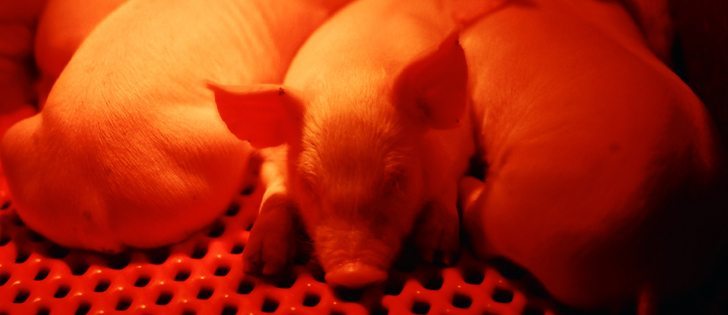Eleven Ontario hog operations had been infected with porcine epidemic diarrhea virus as of Feb. 10.
Feed may be connected with its arrival and spread.
Ontario Agriculture confirmed PED DNA has been found in swine feed samples but did not provide further details.
Livestock feed supplier Grand Valley Fortifiers of Cambridge, Ont., issued a voluntary recall Feb. 9 of swine nursery products that contain porcine blood plasma. It urged other feed manufacturers to do the same.
Kansas State University experts have identified porcine ingredients in feed as a possible source of the virus in the United States, where PED has spread to 20 states.
Read Also

Gene editing digs deeper space in Canadian plant breeding
More Canadian research into crop variety development is incorporating gene editing, and one researcher notes that Canada’s regulatory approach to gene editing will help drive innovation
Grand Valley voluntarily recalled three products and advised producers to stop feeding any they had bought since Jan. 1.
The company said in a news release that feed it had sourced from a third party supplier contained products that “may be a risk factor in the transmission of PED virus.”
Calls to Grand Valley had not been returned by press time Feb. 10.
“That press release indicates that PED blood plasma was in the feed and that’s why it’s being pulled,” said Mark Cripps of Ontario’s agriculture ministry.
“They are telling producers to stop using it.”
In its news release, Grand Valley referred to a third party pelleted feed manufacturer that was using porcine plasma but has since removed the product, cleaned its plant and no longer uses porcine origin feed ingredients.
Robert Harding, executive director of the Canadian Swine Health Board, said he has been in touch with the animal nutrition association and the Canadian Food Inspection Agency since Grand Valley issued its voluntary feed recall.
“They haven’t made any connections. There’s no smoking gun yet,” said Harding.
Dr. Egan Brockhoff of Prairie Swine Health Services in Red Deer said porcine blood plasma isn’t an uncommon swine feed ingredient. It is a protein source.
However, he said there are other sources of protein, and most of his Alberta clients do not use feed containing porcine-based products.
Testing feed for PED is good advice regardless of content, added Brockhoff.
“Essentially they recommended that you take a closer look at your feed, your potential risk within your swine diet,” he said about the Kansas State advice.
Harding said new cases confirmed in Ontario are not a surprise, but they are disappointing.
The PED virus thrives in cold weather and spreads easily in fecal matter on trucks, clothing and other materials. Hog operations are sending in large numbers of samples to test for infection in efforts to identify and contain PED.
“It is desperate times, and desperate times take desperate measures,” Harding said.
“We’re not in a panic mode, but we certainly are in a crisis mode in Canada on how do we ensure that we contain what’s here and potentially eliminate that?”
PED has been found in three wean to finish and eight farrow to finish operations in eight Ontario counties. Virus presence has also been confirmed at trucking yards, a processing plant and a hog assembly yard.
Infected farms voluntarily halted shipping immediately after the virus was discovered in Ontario Jan. 22 . However, Brockhoff said there is a plan for carefully timed shipping of hogs for processing.
PED poses no risk to humans or other animals, and its presence in barns does not affect meat quality or safety.
Its damage lies in high piglet mortality. The virus kills nearly 100 percent of young pigs. Older ones appear able to mount an immune response, which limits losses.
A vaccine is available, but its efficacy is unproven and it will not prevent infection.
Harding said provincial co-operation is key in limiting further spread of PED, which has been ongoing since it was first confirmed in the U.S. in May.
He said American counterparts have been helpful in sharing research results and advice.
PED has not been reported in western Canadian hog operations.
















